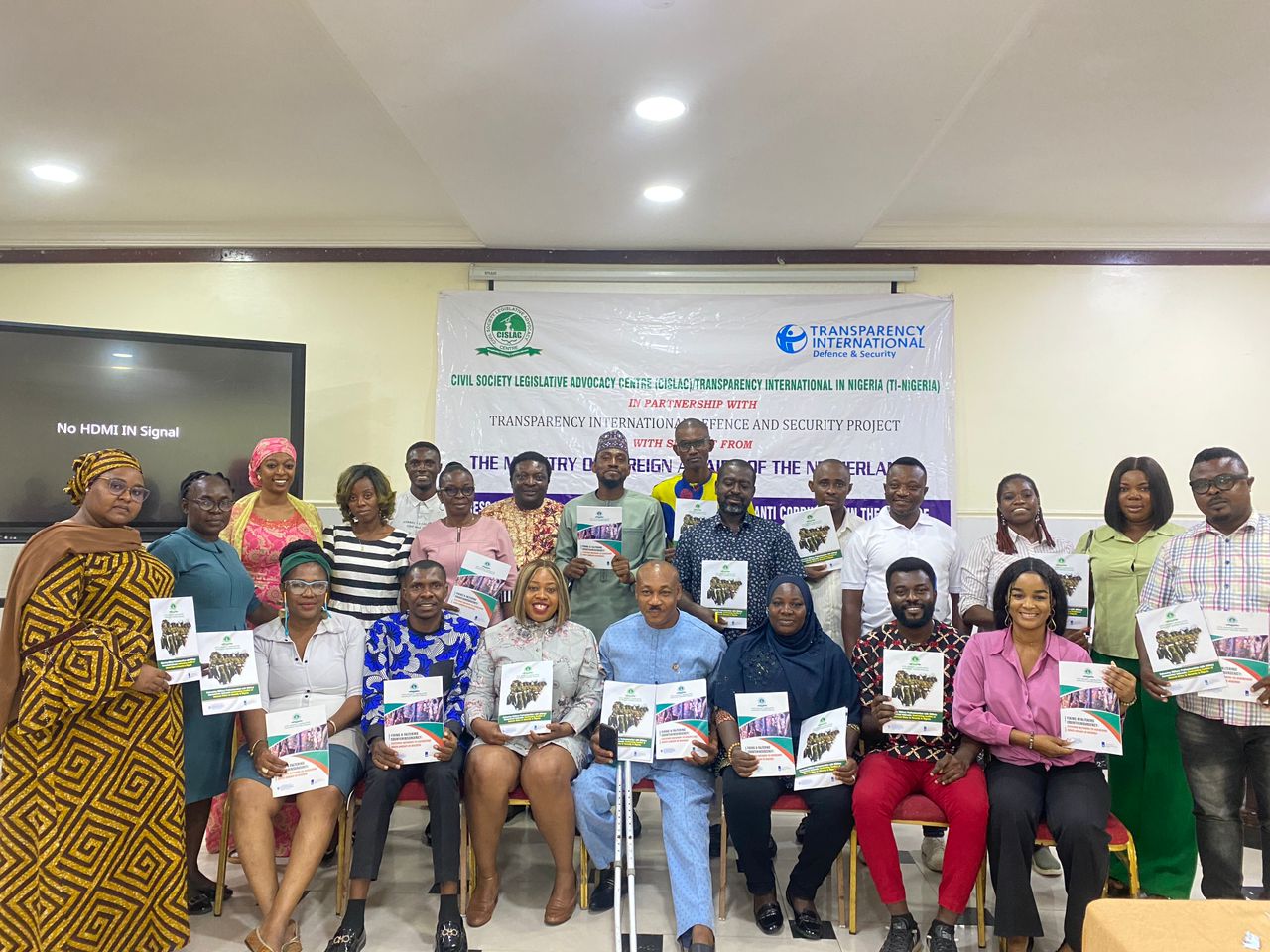By Tina Amanda
Civil Society Organizations (CSOs) are calling on Nigerians, including the media, to actively monitor and question the significant funds allocated to the country’s defense sector, which they argue are shrouded in secrecy and susceptible to corrupt practices.
Speaking at an anti-corruption event in Port Harcourt, Auwal Ibrahim Musa, Executive Director of the Civil Society Legislative Advocacy Centre (CISLAC) and Head of Transparency International in Nigeria, emphasized the urgent need for transparency in military spending.
The event, organized by CISLAC in collaboration with Transparency International – Defence and Security Program, highlighted issues of financial mismanagement, gender disparities, and operational inefficiencies in the sector.
Musa noted that substantial funds have been pumped into military budgets and procurement, yet Nigeria’s prolonged fight against insecurity remains ineffective.
He urged the media and citizens to scrutinize defense procurement spending, given that these expenditures are financed by taxpayer money.
Musa pointed to several high-profile corruption cases in the defense sector, including a 2022 raid by the Independent Corrupt Practices and Other Related Offences Commission (ICPC) on the residence of a military contractor in Abuja.
“Authorities reportedly seized over N1.8 billion in cash, luxury vehicles, and designer items, such cases often disappear, and those involved continue with impunity, protected by political interests.”
Musa revealed that over 80% of military personnel are stationed in security operations across Nigeria’s 36 states, with large sums budgeted for these efforts. This, he argued, has led to over-weaponized operations, enabling the continued diversion of funds and unaccountable engagements with foreign private military contractors.
“Transparency International recently reported that over N241.2 billion allocated annually to security votes remains unaccounted for. Nigerians need to ask questions about how these funds are used.
“International standards require that citizens ask questions because taxpayer money is funding these operations. We cannot keep silent out of fear.”
He further highlighted key challenges in the defense sector, which include opaque procurement processes, inter-agency rivalries, inflated contracts, and oversight failures.
“These issues have not only hindered counter-terrorism operations but also lowered morale, weakened the protection of lives and property, and undermined public trust in defense institutions.”
Green Isaac, Executive Director of Relief International Africa, added that the federal government must develop policies clarifying the roles of military and police formations, especially regarding acquisitions like land.
“Police officers should not accompany land grabbers; that is a crime in itself. How can the police who are supposed to be protecting people, be aiding and abating crime, that is crime on its own for Police officers to accompany land grabbers to go get what does not belong to you?
“It means they are against the very ethics of what they are protecting. We are saying they should work within the ambit of the law and not go against the people.”
Isaac advocated for policies that would guide law enforcement conduct, ensuring they act within the law and protect citizens’ interests.
CSOs at the event reiterated the importance of reform, stressing that financial transparency, gender inclusion, and operational fairness are essential to restoring integrity in Nigeria’s defense and security sectors.




